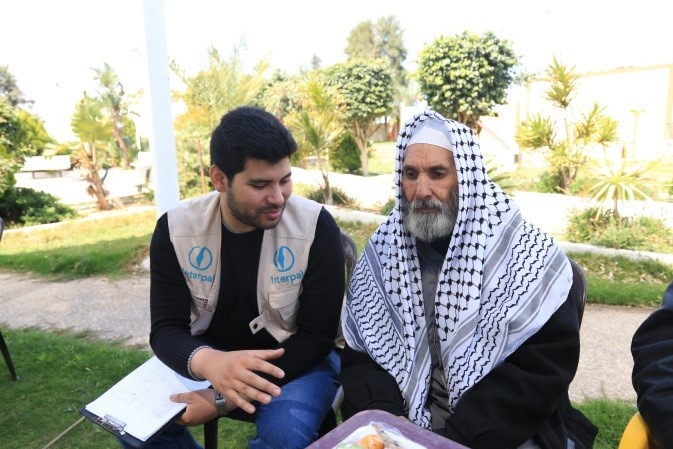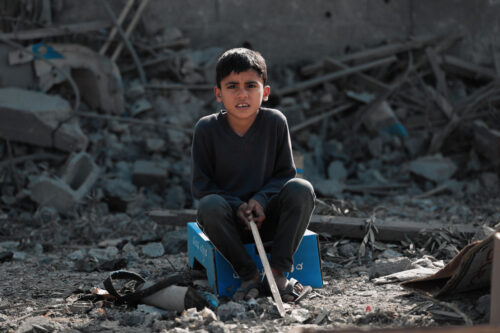International Men’s Day

Today is marked as International Men’s Day and it is a day to recognise the contributions men make to their communities and the world whilst also acknowledging the struggles and challenges men and boys face.
Although women and children make up most of the world’s refugees and women and girls are more likely to suffer gender based violence, men are also impacted by oppressive gender norms that limit opportunities or harm their health and they also suffer the impact of poverty and displacement in many complex ways.
Palestinian men have a long held reputation for being ‘steadfast’ and are expected to provide for and protect their families. The impact of economic stagnation, violence and discrimination have caused many men to struggle in these expected roles and to fall into depression, ill health and to even direct their frustration at women and children in their own families and communities.
Whilst aid and development programmes have been working to include gendered needs and to ensure women are always included, there has been a realisation that men are sometimes excluded from certain support due to the assumption that their needs are not the same as women. During our field visits to Lebanon we heard from many organisations that worked with women about how there was a need to address mental health, the lack of motivation and also health issues for men working in difficult jobs. They were concerned that the very vital needs of women needed to be met as women’s vulnerability was dire but that they also needed to reach men to ensure the health and safety of women and children.
We spoke with fathers who were exhausted from being unable to feed their families and how they were willing to risk getting on boats to get to leave Lebanon rather than stay and be unable to provide for their children. It was clear that men were suffering from the years of violence and uncertainty in both the same and also gender specific ways from women. Often mothers and wives would ask us what help there was for their men because they were struggling to manage the families and manage the well being of everyone when the men had given up on themselves.
In Gaza, our team met with a father who was so distraught at being unable to feed and provide medical care for his children that he was willing to sell his organs. He spoke of helplessness and feeling like a failure and whilst being truly heartbreaking, his situation also points to the ways in which Palestinian men are willing and often do sacrifice their well being for their families. In Gaza, instances of domestic violence are reported to rise during Israeli bombardments and also during the Coronavirus lockdowns. This is also true for the West Bank when Israeli aggression often leads to tighter control over women and increased tensions within homes.
The occupation, trauma and poverty have caused both men and women to struggle in their proscribed roles. Men are unable to protect their homes and families whilst women feel additional burdens when trying to care for their family members and provide comfort and support.
Issues of toxic masculinity, misogyny and violence against women exist across all cultures and this is also true for our areas of operation. However, we have seen the hugely positive and heartfelt contributions and work that men in the occupied territories and the refugee camps of Lebanon and Jordan do for their communities. We have seen the struggles of fathers, we have witnessed young men with severe injuries talking about wanting to do more for their loves ones and the commitment of sons in looking after their parents.
It is important to view Palestinian men in a holistic way that recognises their humanity and work with them to provide the right services and support. Helping men manage their feelings, their frustrations and recognising that they suffer in many ways is vital for all of society. Men that are able to access support, not be hampered by stigma and can respect and care for others is how to help Palestinian society cope and stay steadfast. Interpal works to ensure we include men and women in all our programmes and we have funded family focused trauma counselling and medical equipment aimed at supporting male health issues.
On International Men’s Day we recognise the many ways in which Palestinian men sacrifice, work and struggle for their families and communities and that their needs and struggles should be acknowledged and supported for the well being of Palestinian society as a whole.
#PalestineFacts
Calculate your Zakat
Confused about how to calculate your Zakat? Try our simple-to-use calculator




